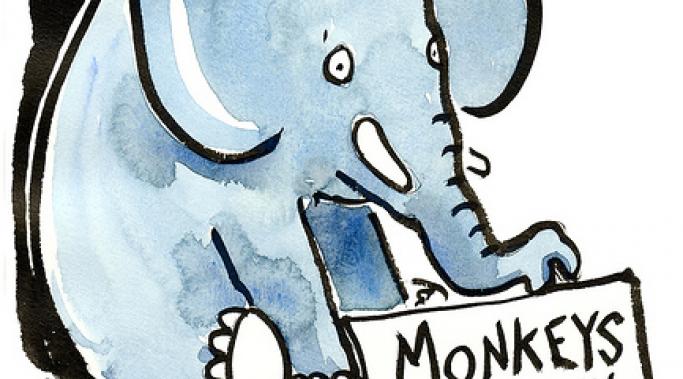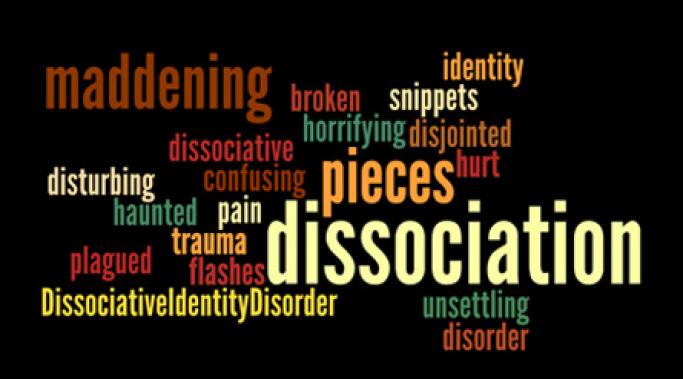Blogs
Dating as a single mother--tough. Dating as a single mother of a child who never sits still, throws outrageous tantrums, gets kicked out of preschools and gives you black eyes--tough to the point you might want to consider adopting several cats and joining the spinsterhood. Once in a while, though, life throws you a curve ball, and you might just meet Mr. Fantastic--that's when the real work begins.
As I mentioned in an earlier blog post, for many, anorexia and anxiety go hand-in-hand. Anxiety can contribute to developing anorexia. Conversely, having anorexia can lead to increased levels of anxiety.
I do take several anti-anxiety medications to help manage my anxiety. My doctor also had another suggestion which I'll share with you in this video.
I've lived virtually my whole life with a vague but pervasive sense that somewhere there were people I couldn't see who knew things about me I didn't. When I was diagnosed with dissociative identity disorder, I finally understood that the information I wasn't privy to existed in my own head, guarded by alter personalities. I naively thought I could simply ask and all would be revealed to me. I quickly learned that developing internal communication isn't nearly that easy. But there are dialoguing techniques that can help.
What I know about the brain is a fragment of what is known about the brain. What we know about the brain is a fragment of what there is to know about the brain. That being said, what we do know is worth taking a look at.
In the 1960’s scientists discovered that increasing levels of dopamine, norepinephrine, and serotonin in the brain reduced depressive symptoms. This suggested that a depressed brain didn’t have enough of these chemicals and this is where the chemical imbalance theory came from. It was quite reasonable and made perfect sense, but we’ve learned a lot since the 1960s.
Jeff Wise says understanding fear isn't as simple as the fight or flight model suggests. He believes coping with anxiety and panic is easier with a more sophisticated grasp of how our minds respond to fear. Jeff is a science writer and the author of Extreme Fear: The Science of Your Mind in Danger.
Every day, I wake up anxious and afraid to face the day. Each morning, my anxiety is so strong, I sometimes feel as if I am crawling out of my skin. I have dealt with anxiety and depression most of my life, but it has increased tremendously since I developed anorexia nervosa. It seems as if eating disorders and anxiety are intertwined. Dealing with daily anxiety has been one of the worst side effects of having anorexia. I have often said "if I could only get rid of the anxiety . . ."
I am a word-fetishist. I adore words. They are my playthings. They are my blankies. I generally mold them, shape them and occasionally break them at my leisure.
But I also respect words. I respect their meaning and their use outside the bounds of current politically correct, self-help thinking, but somehow the rest of the world wants to complain because I call a spade a shovel.
Asking for help is about as much fun as a tonsillectomy with a hose pipe and a pair of pliers. So, if I do get that far, try not to say things like "I know how you feel," "it can't be that bad," "aren't you over that yet?"
No. I'm pretty sure you don't, and I'm not. I have a chronic mental illness. It isn't going to go away. Ever.
Can you imagine...
Today, in the U.S., we celebrate Thanksgiving. The holiday seems to have gotten a bit lost in the push to jump-start the holiday shopping season, but it's a perfect opportunity to put our lives into perspective.
I dreamed I was at the mall, shopping with my partner. We strolled through the stores, bought a few things, and went home. It wasn't a particularly noteworthy dream but I mentioned it in passing to her anyway. "That wasn't a dream," she said. "We did that yesterday." How did I confuse reality for a fiction created by my dreaming mind? Memory is a tricky thing and dissociation complicates remembering. It's only because I have dissociative identity disorder (DID) and am aware of my dissociative memory problems that I believed her when she said it wasn't a dream. It didn't, and still doesn't feel like a memory at all.








